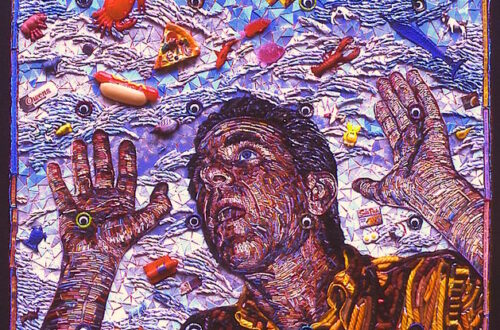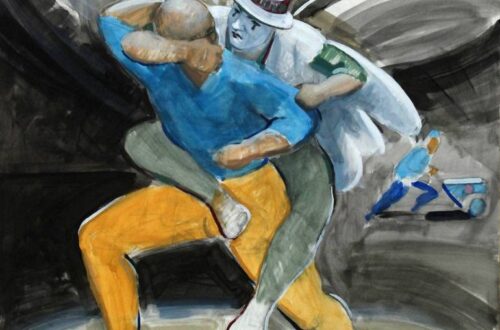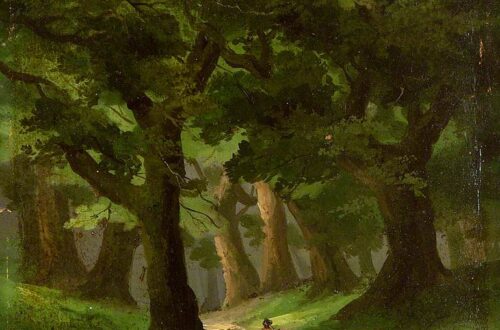-
Potiphar’s Wife
Last week we said that Chapter 38, the story of Judah and Tamar, seemed like an interruption of the main story of Joseph. This week we pick up the story again but, clearly, there is an intentional comparison of Judah and Joseph. In a way, this is a story of how one man is seen through four different sets of eyes: Potiphar, his wife, the prison warden, and God. First, Potiphar. The text says, “When his master saw that the Lord was with him and that the Lord gave him success in everything he did, Joseph found favor in his eyes and became his attendant.” From the beginning of his…
-
A Hand in the Flood
Listen to “A Hand In The Flood” by Fred Smith The Bible reminds us, “With a strong hand and an outstretched arm His love endures forever. We are safe in His hand and with His firm hand He is with us when we pass through the waters and when we pass through the rivers that threaten to sweep over us and overwhelm us.” I love that strong hand and outstretched arm. Especially when life is overwhelming. Mike Gerson’s stunning sermon on Sunday at The National Cathedral reminded me of an incident in my own life. Not depression but fear. A few years ago, I was in just such a river…
-
The Arena
Listen to “The Arena” by Fred Smith Long before being appointed Secretary of Education, Betsy DeVos in an interview spoke about something she had learned on a trip to Israel with her husband, Dick. There is a particular area between the foothills where Israel lived and the coastal plains controlled by the Philistines. The site of many battles, it was a highly contested territory. However, it was never held permanently and so became the place where two cultures co-existed in tension. Called the Shephelah, it was a dangerous place to live. In the interview, Dick and Betsy described their desire to do just that – to live in the…
-
If I Were Rich
Listen to “If I Were Rich” By Fred Smith “If I were rich, I would tell them exactly what I was thinking and not hold back. I would ask the hard questions. What could they do to me?” Like my friend, which of us doesn’t say that to ourselves now and then? Of course, there are people who have enough confidence or lack of experience being rebuffed who are able to say what they are thinking without considering the consequences. That is why Doc Martin on PBS is one of my favorite characters. His personality is gruff, to-the-point, and completely lacking in bedside manner. His total absence of filter means…
-
Joseph’s Dreams
Let’s work backward this morning and start with the bones of Joseph being buried in Canaan several hundred years after his death. We can read in Joshua 24:32 “And Joseph’s bones, which the Israelites had brought up from Egypt, were buried at Shechem in the tract of land that Jacob bought for a hundred pieces of silver from the sons of Hamor, the father of Shechem. This became the inheritance of Joseph’s descendants.” Why was Joseph at the end of his life in Egypt so insistent that his bones be carried back to Canaan and buried in Shechem? I think we’ll see after we look at the story of his…
-
God and The Good Life
Listen to “God and the Good Life” by Fred Smith Listening to Meghan Sullivan this week at the Augustine Collective Conference describe her introduction to philosophy course at Notre Dame titled “God and the Good Life” I started thinking about what the “good life” would mean. While there are a few outspoken critics about the role of religion in creating a good life – like the late Christopher Hitchens or Richard Dawkins – it’s nearly a universal consensus that the role of religion is central in any consideration. But what religion? Is it all religions or just a few? Is it a defined orthodoxy or perhaps a combination like…
-
At Last – Not Free
Listen to “At Last – Not Free” by Fred Smith Max Pennywise, a local small business owner and new Chair of the Long-Range Planning committee at First Church had just finished reading the latest book on making churches sustainable – “Five Steps to Freedom: An Innovative Business Model for Congregations.” In it, he discovered how the leadership of First Church could move from dependency on donors to creating a business approach that was not only responsive to the customers but would guarantee a future based on effectiveness and efficiency. After all, with the number of people attending weekly services on the decline, an aging population of loyal donors, an…
-
The Tower of Babel
One of Flannery O’Connor’s short stories is about a grandfather who takes his grandson, Nelson, to Atlanta to show him by comparison how good it is in the country. A visit to the city will cure him of his boredom with rural Georgia. Arriving on the train, they begin to walk and are soon lost. For the whole day they try to find their way back to the station but walk around in circles confused and no closer to the station. The grandfather’s “moral mission” to show the boy how evil, dark and unwelcoming the city is takes an unexpected turn but in the end they find the train home…
-
Paper Losses
Listen to “Paper Losses” by Fred Smith Several years ago I read an article using the research of Daniel Kahneman and Amos Twersky to illustrate the brain’s reaction to gain and loss. It seems the amount of pleasure we receive from a gain of $1000 is not equal to the amount of sadness we feel about a loss of the same amount. In fact, according to their findings, we are two times as sensitive to loss as we are to gain, and it would take a $2,000 gain to offset the pain of our $1,000 loss. Our capacity for regret seems to outpace our capacity for happiness by at…
-
The Great Wave of Schism
Listen to “The Great Wave of Schism” by Fred Smith Once upon a time, according to geologist Alfred Wegener in his 1912 book “The Origin of Continents and Oceans”, all the continents formed one large land mass called Pangaea. Three hundred million years ago, Earth didn’t have seven continents, but instead one mammoth supercontinent surrounded by a single ocean. The several continents fit together like a puzzle. For about 100 million years the puzzle held together but then with the shifting of the underlying tectonic plates the entire mass began drifting apart. No doubt, there had been minor breaks and smaller new formations but on the whole, Pangaea had…



